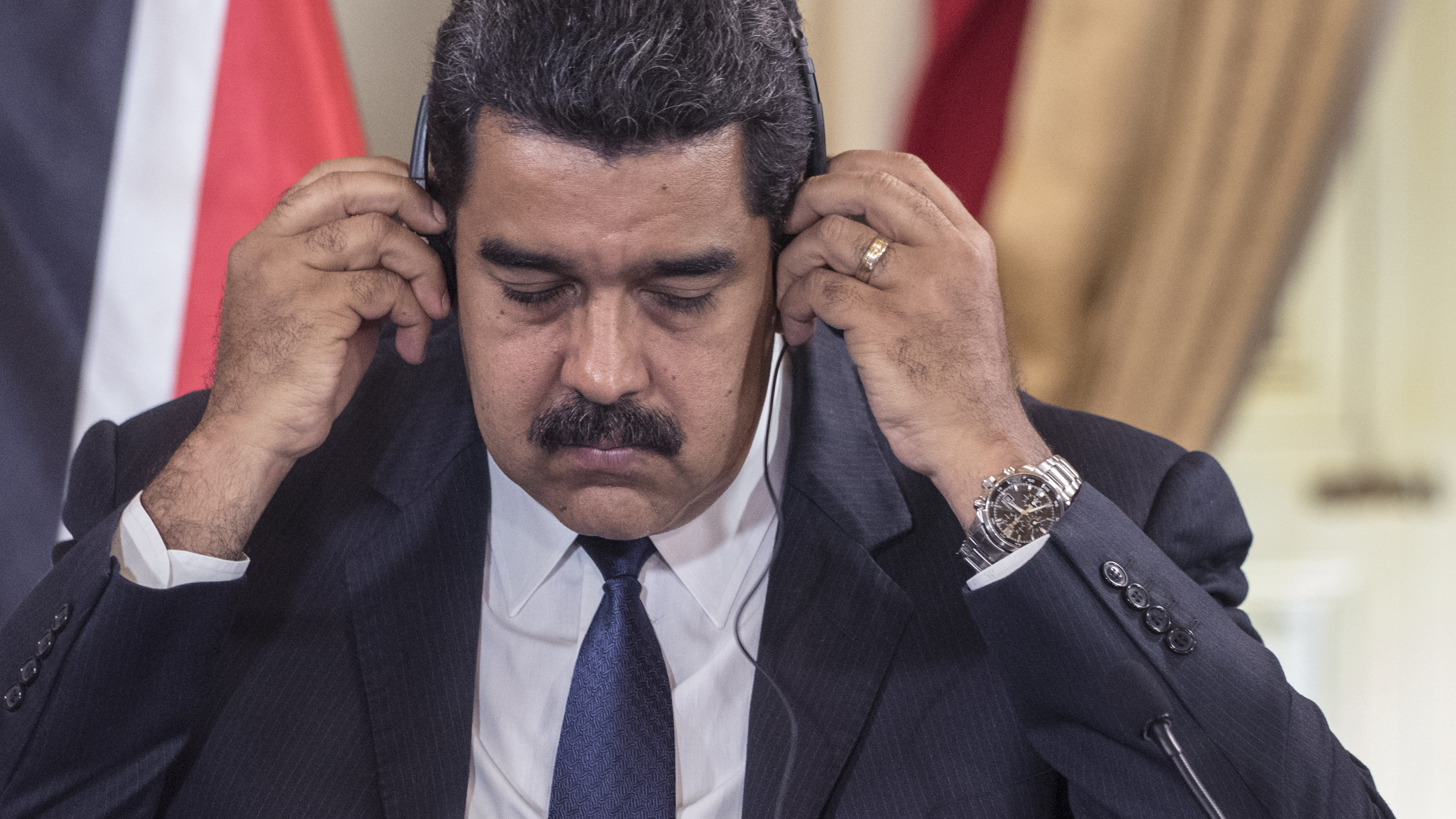Al Shimari v. CACI: Further Supreme Court Guidance Needed on the Alien Tort Statute
The recent ruling by the Eastern District of Virginia in Al Shimari, et. al. v. CACI highlights the need for further guidance from the Supreme Court—or even better, Congress—regarding the scope and nature of the Alien Tort Statute (ATS).
The recent ruling by the Eastern District of Virginia in Al Shimari, et. al. v. CACI highlights the need for further guidance from the Supreme Court—or even better, Congress—regarding the scope and nature of the Alien Tort Statute (ATS).
Plaintiffs Suhail Al Shimari, Salah Al–Ejaili, and Asa’ad Al–Zuba’e, all Iraqi nationals, were detained in the custody of the U.S. Army at Abu Ghraib prison in Iraq in 2003 and 2004. In 2008, they sued a government contractor, CACI Premier Technology, Inc., which provided interrogation services for the U.S. military at Abu Ghraib. The claims of human rights abuses were asserted under the ATS.
The ATS is an odd jurisdictional statute that passed as part of the Judiciary Act of 1789. In its current form it states: “The district courts shall have original jurisdiction of any civil action by an alien for a tort only, committed in violation of the law of nations or a treaty of the United States.” It was rarely invoked and, once there was more general jurisdiction, fell into almost complete dormancy until the 1980s, when it was dusted off by human rights advocates to sue perpetrators of human rights abuses in other countries. The lower courts initially said that the ATS provided a cause of action for international law violations, such a torture. However, in the 2004 case Sosa v. Alvarez-Machain, the Supreme Court repudiated the notion that the ATS was itself a cause of action. The court held it was a jurisdictional statute, which creates no rights or remedies. But the court left the door open for common law actions that might be heard under the ATS jurisdiction. The court said the grant of jurisdiction is “best read as having been enacted on the understanding that the common law would provide a cause of action for [a] modest number of international law violations.” The court nevertheless went out of its way to chronicle reasons why a court must act very cautiously and with “a restrained conception of the discretion” in both recognizing such common claims and in extending liability. The court instructed the federal courts to refrain from an “aggressive role in exercising a jurisdiction that remained largely in shadow for much of the prior two centuries,” and to approach this federal common law power with “great caution.”
The lower courts were not deterred in their recognition of ATS common law action of human rights abuses that took place in other countries, and the Supreme Court had to step in once again. In 2013, the court in Kiobel v. Royal Dutch Petroleum Co. held that the ATS was not intended to be extraterritorial, and that common law actions brought under the statute for violations of the law of nations occurring abroad were barred. But again, the court left the door slightly ajar. The majority opinion, after 14 pages of opining how the ATS does not apply to human rights violations occurring outside the United States, added: “[o]n these facts, all the relevant conduct took place outside the United States. And even where the claims touch and concern the territory of the United States, they must do so with sufficient force to displace the presumption against extraterritorial application.”
Unsurprisingly, many lower courts since Kiobel have largely ignored the thrust of 95 percent of the opinion and its holding, and instead read the epilogue to adopt a new fuzzy test (looking at whether the claim has “a U.S. focus” and relevant conduct in the United States) for allowing U.S. courts to adjudicate human rights violation and injuries that occur abroad.
The ruling last week in Al Shimari v. CACI is a reminder that additional intervention by the Supreme Court may still be needed. Plaintiffs there allege that CACI violated the law of nations by committing acts involving torture, cruel, inhumane and degrading treatment (CIDT), and war crimes by conspiring with U.S. military personnel to commit those acts, and by aiding and abetting the commission of those acts.
CACI employees conducted interrogations alongside military intelligence personnel at Abu Ghraib, and plaintiffs allege that CACI employees were the de facto supervisors and expressly ordered military personnel to “soften up,” “rough up” or “humiliate” detainees. One military investigation into the abuses at Abu Ghraib found that CACI employees, as well as military personnel, had “responsibility or complicity in the abuses that occurred at Abu Ghraib” and that what began as “nakedness and humiliation, stress and physical training (exercise)” devolved into “sexual and physical assaults by a small group of morally corrupt and unsupervised soldiers and civilians.” And military personnel testified in court-martial proceedings that CACI employees ordered the following conduct: restriction of detainees’ diets; exposure of detainees to extreme hot or cold, including cold water; nudity; stress positions; sleep deprivation; forced physical exertion to the point of exhaustion; humiliation, such as forcing detainees to wear female underwear; and the use of unmuzzled dogs.
Over the last decade, the case has yo-yoed up to, and back from, the Fourth Circuit four times, dropped two defendants, added three plaintiffs then dropped one, bounced to a new judge, and is now proceeding on a third amended complaint. Out of all the back-and-forth came a few key rulings. In the case’s third trip to the Fourth Circuit in 2014, the court held that plaintiffs’ ATS claims satisfy the “touch and concern” test, and that the case could move forward even though all of the injuries were sustained in a foreign country.
In 2016, responding to CACI’s argument that plaintiffs’ claims were non-justiciable under the political question doctrine, the Fourth Circuit reiterated its position in Taylor v. Kellogg Brown & Root Services, Inc. that abstention is only warranted when a government contractor acted under the direct control of the military and a decision on the merits of the claim regarding the contractor’s conduct would require the judiciary to question actual, sensitive judgments made by the military. The court determined that “the military cannot lawfully exercise its authority by directing a contractor to engage in unlawful activity. Thus, when a contractor has engaged in unlawful conduct, irrespective of the nature of control exercised by the military, the contractor cannot claim protection under the political question doctrine.” To the extent that “plaintiffs’ claims rest on allegations of unlawful conduct in violation of settled international law or criminal law then applicable to the CACI employees,” they are not defeated by the political question doctrine.
In October 2016, District Court Judge Gerald Lee, who had presided over the case since 2008, recused himself. The case was reassigned to Judge Leonie Brinkema, who immediately directed the parties to brief the applicable legal framework for analyzing the plaintiffs’ ATS claims. On June 28, 2017, Judge Brinkema issued an opinion holding that torture, CIDT, and war crimes all constitute violations of clearly established international law and are therefore actionable against private parties under the ATS.
On Feb. 21, 2018, Judge Brinkema ruled on a renewed motion to dismiss. The court dismissed the plaintiffs’ three direct liability claims on the grounds that the complaint failed to plausibly state sufficient facts establishing direct contact between CACI employees and the plaintiffs. The court left in place the conspiracy and aiding and abetting claims for each of torture, CIDT and war crimes.
The CACI case, and the most recent ruling, highlights the need for further clarification regarding the nature and scope of the ATS.
First, in its early rulings, the court held that corporate defendants like CACI may be liable for violations of international law under the ATS. The Supreme Court will address that issue this term in Jesner v. Arab Bank, PLC.
Second, beyond the corporate liability issue, the case raises the question of whether a common law action under the ATS aiding and abetting liability or conspiracy is consistent with the Supreme Court’s warnings of the “modest” scope of the ATS. Even where Congress expressly establishes domestic criminal aiding and abetting liability, the question of whether to impose such liability for civil claims as well is still deemed a separate legislative policy that typically requires legislative action. In Central Bank of Denver v. First Interstate Bank, the court explained that there is no “general presumption” that a federal statute should be read as extending aiding and abetting liability to the civil context. While in the criminal context the government’s prosecutorial judgment serves as a substantial check on the imposition of criminal aiding and abetting liability, there is no similar check on civil aiding and abetting liability claims. Significantly, the Central Bank of Denver court noted that “Congress has not enacted a general civil aiding and abetting statute—either for suits by the Government (when the Government sues for civil penalties or injunctive relief) or for suits by private parties.” The court concluded, “when Congress enacts a statute under which a person may sue and recover damages from a private defendant for the defendant's violation of some statutory noun, there is no general presumption that the plaintiff may also sue aiders and abettors.”
In CACI, the court believed that it had full power to legislate a common law remedy for aiding and abetting a human rights violation. At some point, however, the Supreme Court will have to decide whether, consistent with Central Bank of Denver, aiding and abetting claims may be heard under the ATS. In Central Bank of Denver, the Supreme Court explained that adoption of aiding and abetting liability for civil claims would be “a vast expansion of federal law.” Such an expansion of the law, the court held, required legislative action, and could not be carried out through the exercise of federal common law. The Supreme Court may say the same in regard to the ATS.
Also, on aiding and abetting liability, the court may want to examine whether there is an established international law standard as to civil aiding and abetting. Even as to the criminal law standard, there is no one well-defined, universally-accepted standard established in the international community. The concept is still developing and has not achieved international consensus. Given that, aiding and abetting liability for civil claims under the ATS may not meet the “high bar” established by the Sosa court for recognizing a cause of action under U.S. common law.
In addition to the aiding and abetting issues, the court may also want to consider the whether the existence of a statutory remedy under the Torture Victim Protection Act (TVPA) precludes the recognition of a common law action based on torture. In the Bivens context, the Supreme Court has rejected common law constitutional claims if they pertain to a subject that Congress has addressed. The same rationale may apply to the ATS. Judge Brinkema held that the TVPA does not preempt an ATS action for torture, but in actuality, it is not a question of preemption; rather it is a recognition of the modest and weak common law powers, and the impropriety of employing those powers where Congress has already spoken.
Finally, CACI shows the need for clarification by the Supreme Court about what, if anything, “touch and concern” adds to the extraterritoriality inquiry when the injuries and the tortious acts of the direct actors all occur in a foreign country. The lower courts seem hopelessly confused on that score.
Of course, even better than piecemeal fixes from the Supreme Court, it would be far preferable and more appropriate for Congress to revisit the ATS for the first time since 1789. Congress should think about how and when human rights actions for foreign injuries should be heard in our courts. But with today’s dysfunctional Congress, that seems unlikely. For now, unless some of these issues are certified for appeal, it looks like CACI may be headed to trial for a claim of conspiracy and aiding and abetting torture in another country.



-2.jpg?sfvrsn=f979c73d_6)

